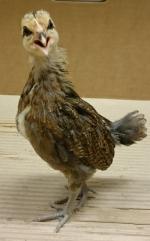Abstract

Actions which are poorly conceived, prematurely expressed, unduly risky or inappropriate to the situation, do not fit well with the notion that an animal always behave optimally. Yet this is the essence of impulsivity and impulsive behavior is shown in a wide variety of species and across taxa. There are individual differences in impulsivity, yet what affects an individual’s impulsivity levels are still unclear. Impulsivity is by some described as a personality trait and by others as a cognitive ability, how impulsivity relates to personality and cognition is however still largely unknown. To explore how impulsivity relates to personality and cognition in the red junglefowl, two types of impulsivity were assessed, impulsive action and impulsive choice, together with personality assays and cognitive tests. How learning affected the impulsivity score was assessed both over trials and by testing previously tested birds and untested birds later in life. Impulsive action did not correlate with any of the personality or cognitive traits measured. When impulsive action was assessed with a cylinder test learning affected the impulsivity score. The individual impulsive action score of a chick did not correlate with its score as an adult, indicating that impulsive action is not repeatable and can therefore not be considered as a personality trait. Impulsive choice had moderately negative correlations to personality and cognition. Whether impulsivity is part of personality or cognition was not possible to answer in this thesis, however, impulsive action and impulsive choice seem to relate to personality and cognition in different ways.
Responsible for this page:
Director of undergraduate studies Biology
Last updated:
04/27/17
